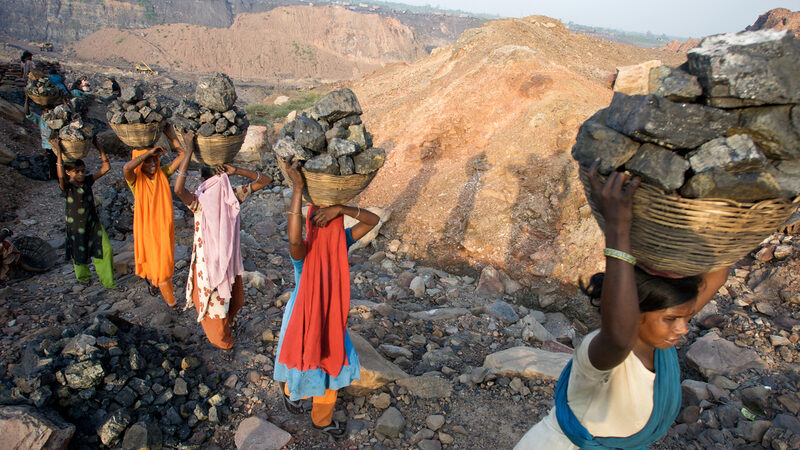United Nations talks on how to make the global green transition fair provoked frustration last week among developing countries as rich nations did not attend in person and refused to discuss thorny issues.
About 30 developing countries sent civil servants to a five-star hotel in Ghana for official UN discussions on “response measures” that are meant to tackle how to maximise the benefits and minimise the negative impacts of a green transition.
All nations agreed at last year’s COP28 climate conference to hold the latest round of talks in a hybrid format. There were no officials present from wealthy governments – and while the US, the European Union and the UK did log on virtually, they kept their cameras largely off during the two-day meeting. Their rare contributions were received badly by developing countries.
The UN negotiations on response measures to climate change have been going on for more than 20 years. The 2015 Paris Agreement reinforced a commitment by governments to consider the concerns of countries “with economies most affected by the impacts of response measures”, particularly developing ones.
In a video message introducing this month’s talks, UN climate chief Simon Stiell said national climate action plans “will have profound societal implications – both good and bad”, adding “it’s crucial that we ensure more people benefit and that harms are mitigated”.
Participants then swapped their experiences on issues such as electric motorcycles with dead batteries being dumped on the roadside in the Maldives and the effects of EU deforestation regulations on Ghana’s cocoa industry.
Slow progress in Baku risks derailing talks on new climate finance goal at COP29
Towards the end of the first day, Egyptian negotiator Khaled Aly Hashem Hussein observed that “it’s very unfortunate that in this room we don’t have a single representative from the developed countries”. This, he said, made it a monologue rather than a dialogue.
Brazil’s negotiator Vitor Mattos Vaz echoed those concerns, saying that no interventions had been heard from developed countries, including contributions via video.
He said governments “can not cherry-pick only the commitments and the tracks [of the Paris Agreement] that they are interested in”. When they do so, “they are eroding the spirit of mutual trust and reciprocal commitment,” he added, calling for the “absence of their comments” to be formally noted.
Don’t mention CBAM
The next day, representatives from the US, EU and UK did speak up. Sewek Gasiorek from the British government said he regretted not being there in person as “it is a very busy time”, with G20 meetings and the United Nations General Assembly running concurrently.
He then clashed with negotiators from South Africa and Saudi Arabia over the extent to which the talks should focus on how measures taken by developed countries affect poorer nations. Gasiorek said “there is no agreement, as has been suggested earlier” that the discussions should be limited to that – which led South Africa’s Mahendra Shunmoogam to accuse him of “revisionist agenda-setting”.
Shunmoogam then asked the EU’s representative, Belgian government official Catherine Windey, how the EU’s carbon border adjustment mechanism (CBAM) – a tax system that is due to be fully in place by 2026 and is regarded by some emerging economies like South Africa as a protectionist measure that will damage their economies – was compatible with the “do no significant harm principle.”
Windey responded that the dialogue “isn’t supposed to address any individual policies of parties, so I’m not going to enter that discussion here”.
One developing-country official at the meeting told Climate Home they had left Ghana feeling they had wasted their time. “It was getting us into the discussion about nothing really of value,” the bureaucrat said.
Talks will continue at COP29 in Baku in November on whether and how to hold a further year’s worth of workshops and dialogue on response measures.
At COP28, governments agreed that “measures taken to combat climate change, including unilateral ones, should not constitute a means of arbitrary or unjustifiable discrimination or a disguised restriction on international trade”. Developing countries are likely to push at COP29 for agreement on more explicit criticism of policies like the EU’s carbon border tax.
(Reporting by Joe Loe; editing by Megan Rowling)
This article was updated on Sept. 18 to add that the talks were planned in a hybrid format and to clarify a comment from the UK’s negotiator.
